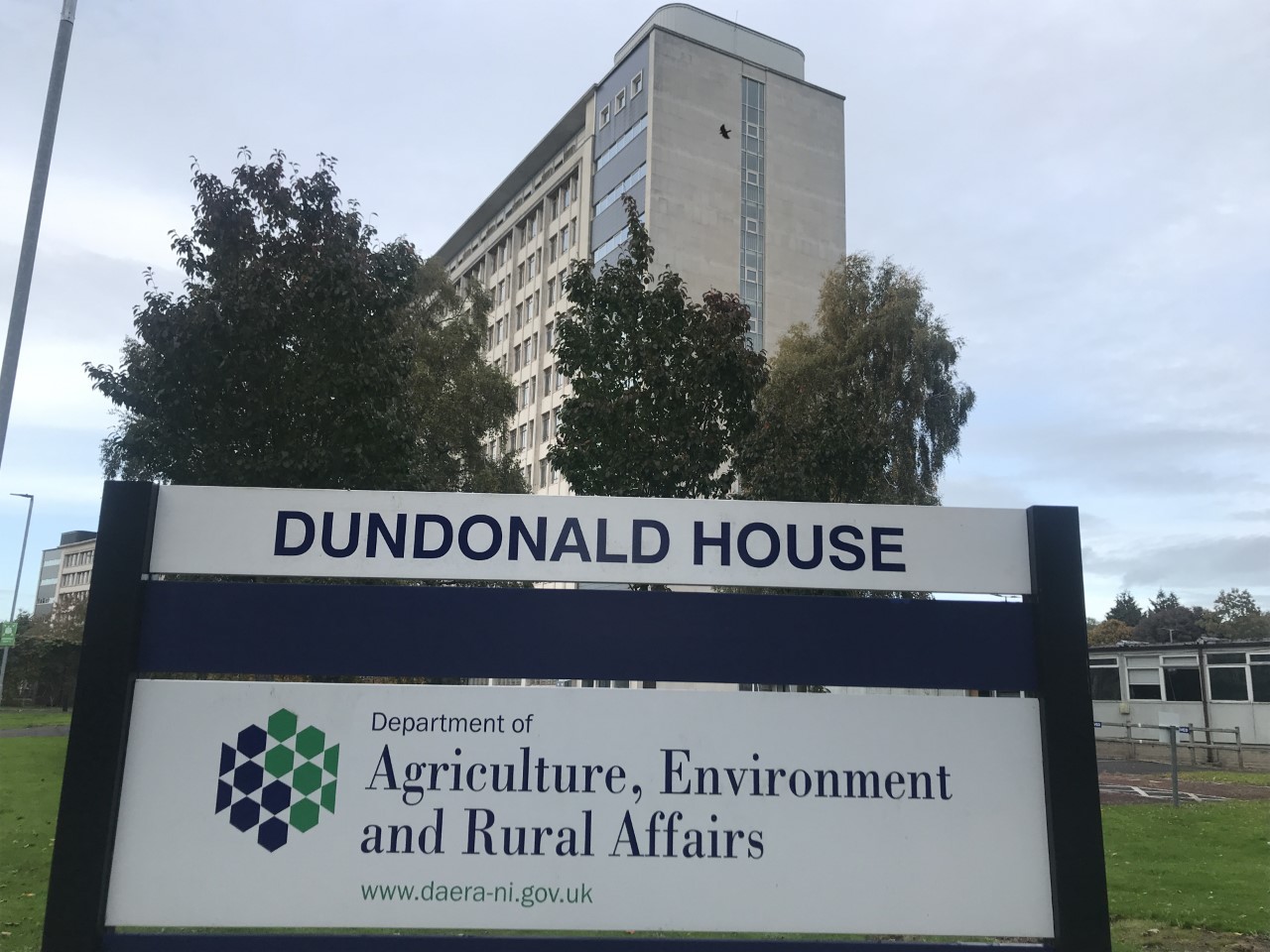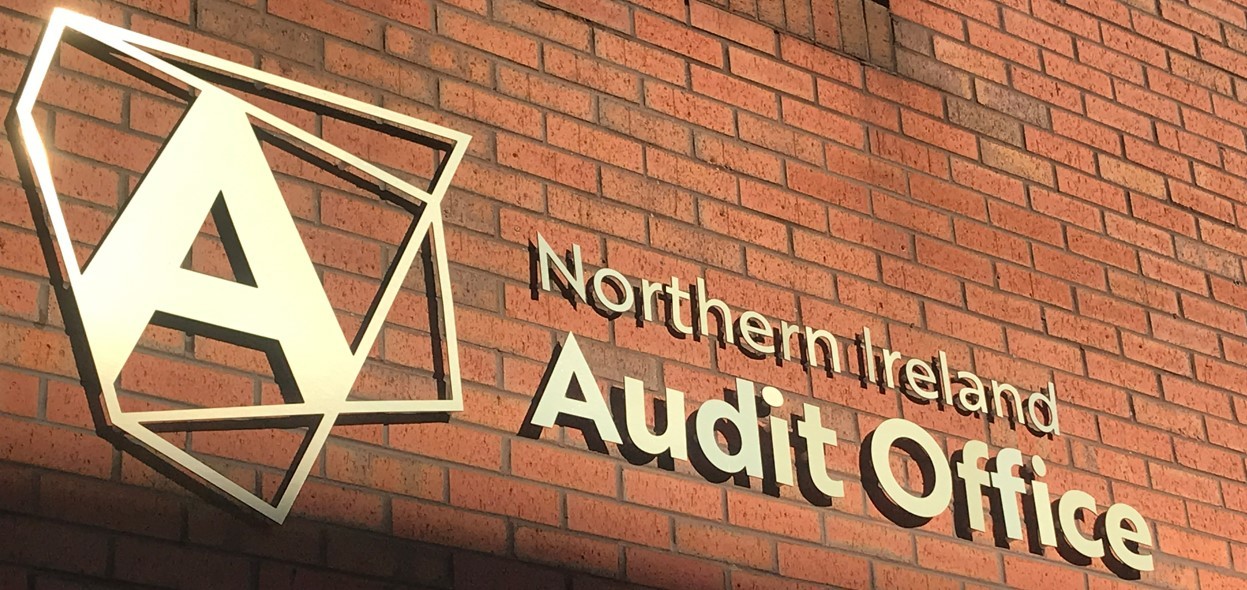A DEPARTMENTAL probe into a scheme which gave tax relief to some quarrying and sand dredging firms was inadequate, an environmental campaigner has claimed.
The Aggregates Levy Credit Scheme (ALCS), which only operated in Northern Ireland, ran between 2004 and 2010.
The scheme was set up to give firms partial relief from the Aggregates Levy tax which required companies to pay a levy per tonne of sand, gravel or stone extracted.
The quarrying industry had argued that the tax encouraged a ‘black market’ in border areas and threatened the commercial viability of firms in Northern Ireland.
However, ALCS has been described by Friends of the Earth’s Northern Ireland director, James Orr, as a precusor to RHI - the ‘cash for ash’ scandal which led to the collapse of the Northern Ireland Assembly in 2017.
After whistleblower Dean Blackwood, a former DoE official, raised serious concerns about ALCS in 2014, the Northern Ireland Audit Office (NIAO) launched an investigation into the dredging of sand from Lough Neagh, including a review of the scheme.
However, while the NIAO wrote up several unpublished drafts of the ALCS report, it never produced a final version.
ALCS was also subject to an internal review by the then Department of the Environment (DoE) in 2015.
But Mr Orr said the review was “superficial and shoddy”.
After The Detail raised concerns about ALCS with the Department of Agriculture, the Environment and Rural Affairs (Daera) - which, in 2016, overtook the now-defunct DoE - the department confirmed it “is investigating the allegations”.
“We are not in a position to comment until that due diligence is complete,” a Daera spokesman said.

The Department of Agriculture, the Environment and Rural Affairs (Daera) overtook the now-defunct DoE in 2016. Photo by Tommy Greene
DoE Probe
A DoE probe in 2015 found the administration of ALCS was in keeping with the scheme’s guidelines.
“In conclusion, from the information contained in the ALCS files, the applications were processed and the certificates issued in compliance with the application guidance and legislation,” the report read.
However, Mr Blackwood called the review, which had no terms of reference guiding it, “an after-the-event rationalisation”.
And Mr Orr alleged it was not sufficiently independent.
“The 2015 ALCS review was superficial and shoddy,” he said.
“Such a complex area of planning and environmental law needed expertise and independence.”
Industrial-scale sand dredging at Lough Neagh held no planning consents until the practice was regularised by then-Infrastructure Minister Nichola Mallon in early 2021.
The move came after the Court of Appeal found in 2017 that sand extraction activity at Lough Neagh must be reviewed.
Shelved Audit Office report
Campaigners have alleged that the decision to shelve the NIAO’s report has contributed to a lack of accountability over ALCS.
The NIAO probe was sparked after Mr Blackwood contacted the office about his concerns over ALCS.
The probe looked at how ALCS operated in relation to sand dredging operators, as part of a wider review into sand extraction at Lough Neagh
The NIAO wrote to Mr Blackwood in October 2015, calling his correspondence regarding ALCS “particularly useful”.
“We have too examined the department’s files on this matter and we have drawn the same conclusions you have,” the NIAO said.
The NIAO subsequently presented a draft of its report to the DoE in November 2015, before the department published its own review.
However, in January 2016 the NIAO told the department that it would be suspending its review.
The NIAO told The Detail it initially took this decision because it had been advised that publication could have prejudiced legal challenges brought by Friends of the Earth over Lough Neagh sand extraction.
An NIAO spokesman said: “This issue was subject to extensive legal proceedings, which considered much of the same information as was covered in the report.
“Furthermore, in the aftermath of these legal proceedings, sand extraction from Lough Neagh was no longer unregulated, and was, indeed, subject of a judicial decision.
“As a consequence, the NIAO determined that there was limited value in proceeding with the report.”
“Let down”
Mr Orr said the report should have been published.
“Our legal challenges sought to prove that Lough Neagh sand dredging was unlawful,” he said.
“They did not include consideration of the ALCS or any other ways in which unauthorised and unregulated extraction may have impacted the public purse.”
Using Freedom of Information legislation, The Detail requested a copy of the unpublished NIAO report and copies of minutes of meetings held between the NIAO and DoE between 2015 and 2016, while the report was being drafted.
However, the NIAO said it would not disclose the documents “because we consider it critically important to an effective audit process that we have a safe space to gather information”.
Mr Orr said the NIAO, along with other authorities, had “let down” the public over ALCS.
“The Audit Office has also demonstrated a lack of transparency here,” he added.
“We know this report went to its final stage. But we’re still left with no clarity as to why it was silenced, for no valid reason.”
===
ALCS: A timeline
June 2014 - Former Department of the Environment (DoE) official Dean Blackwood contacts the Northern Ireland Audit Office (NIAO) about concerns over the ALCS
September 2014 - The NIAO launches probe into unregulated Lough Neagh sand extraction and ALCS
July 2015 - DoE begins an internal review into ALCS
September 2015 - Friends of the Earth NI (FoE) launches a legal challenge over sand extraction at Lough Neagh
October 21 2015 - The NIAO tells Mr Blackwood its report into Lough Neagh sand extraction and ALCS is at an advanced stage
November 2015 - The NIAO presents a third draft of its report to the DoE
December 2015 - DoE completes internal review into the awarding of ALCS certificates to Lough Neagh sand extraction firms
January 12 2016 - NIAO informs the DoE it has suspended its probe into Lough Neagh and ALCS
November 2016 - FoE fails in a High Court bid to force a halt to sand dredging from Lough Neagh. It later launches a second legal case
June 2017 - Following the FoE legal challenge, the Court of Appeal rules that former DoE Minister, Mark H Durkan, acted wrongly in not immediately stopping sand-dredging at Lough Neagh
November 2017 - The Department for Infrastructure says sand-dredging at Lough Neagh can continue subject to conditions
2018-June 2019 - The Planning Appeals Commission considers application to regularise Lough Neagh sand dredging
January 2021 - Infrastructure minister Nichola Mallon regularises sand extraction at Lough Neagh, granting permission to several dredging firms and bringing the activity under planning controls for the first time
December 2021 - Daera begins destroying ALCS files
August 2022 - Remaining ALCS files destroyed
===
Destruction of files
Mr Orr said crucial information was contained within ALCS files which were destroyed by Daera between December 2021 and August 2022.
The files included applications from firms involved in extracting and processing sand from Lough Neagh.
All of the ALCS files have now been destroyed, but Mr Orr said the files of greatest public interest were disposed of first - with each of the Lough Neagh files held by the department destroyed on December 16 2021.
“The ones that raised the most controversy were the first to be destroyed,” he said.
“It shows how poor the environmental governance regime is here - whereby officials think that, by destroying paper files relating to those controversial acts of environmental vandalism, the problems will just go away.”
A Daera spokesman said the files had been destroyed in line with HMRC guidance as well as its internal information management policy.
“The destruction of the files from years ago is carried out in accordance with Departmental Guidance as has been the case with these files,” he said.
“The process in this case was paused pending the issue of revised Departmental guidance.
“Further delays to destruction were brought about by the covid pandemic. The destruction of files follows the Daera Retention and Disposal Schedule issued on 7/6/2021.”
- Tommy Greene, the journalist who wrote this article, is a Bertha Foundation fellow. His recent work has appeared in The Guardian, The Irish Times and the Bureau of Investigative Journalism
- All of the work which he will be completing as a Bertha Foundation fellow will be focused on environmental issues
- This is the second in a series of publications which Tommy will produce as part of the Bertha Challenge
- To find out more about the Bertha Foundation, please click here
 By
By



